10 Ways You Can Become A More Sustainable Scuba Diver
Coral reefs are among the most diverse eco-systems on the planet. Samantha Craven from the Reef-World Foundation shares the basic things divers can do to protect these unique environments.
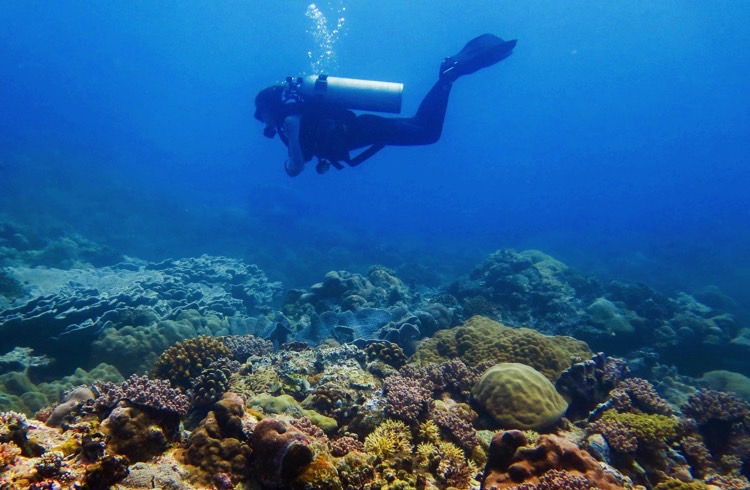 Photo © The Reef-World Foundation
Photo © The Reef-World Foundation
There are few groups of hobbyists as passionate about their playground as SCUBA divers. It is hard not to feel humbled by your first sight of a coral reef – especially once you know that almost everything you see underwater is an animal in some form or another, even if it looks like a rock. It can leave you in awe, and with a strong desire to protect it.
Nature-based tourism is one of the fastest-growing industries in the world, and diving numbers are rapidly increasing – there are an estimated one million new divers certified every year. In terms of protecting the environments that these divers travel to see, tourism is a great non-extractive, educational industry that helps create advocates simply by experiencing a reef. However, it is not without its pitfalls.
Diving can have negative environmental impacts. For reefs already experiencing the effects of warming and acidifying oceans, more frequent and stronger storms and sea-level rises, intense and poorly managed diving has the potential to weaken the health of the ecosystem so it's less resilient to those larger-scale threats. One errant fin kick that breaks a coral may not seem like a lot but consider all the divers that visit a dive site over the course of a year and it will suddenly start to add up.
Luckily, it is fairly simple to ensure that when you visit a reef you are protecting and not harming the marine environment.
Make sure you're weighted properly
Newly certified divers often need a few more pounds on the weight belt to descend, but as your diving and buoyancy skills improve, you need to re-evaluate your weighting. Do frequent weight checks at the beginning of your dives. Having the right weights helps you to stay in the ‘trim’ position so your fins are up and not accidentally dragging along the reef.
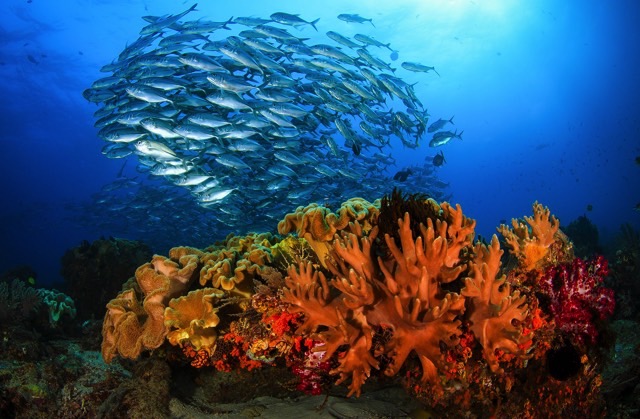
Keep working on your buoyancy
Buoyancy is key to ensuring you don’t need to touch anything to stabilize yourself underwater. Take a peak performance buoyancy course and practice different positions and finning techniques to find out what works for you. Ask your dive guides for some feedback about your diving or copy their positioning. Not only will you be protecting the reef, but improving your air consumption as well.
Don't wear gloves
Gloves are a particular source of contention for divers, and many dive shops in the tropics now have a no-gloves policy. The issue lies with the false sense of security that an extra layer gives a diver. If your hands feel protected, you are more likely to touch the reef without thinking. Try to employ other techniques like good buoyancy, or even holding onto your guide. If you’re worried about stings and cuts from marine life and colonized organisms on a mooring line when you descend – take one glove to hold on to the line and keep it in your pocket until you ascend.
Go streamlined
Make tucking in your equipment part of your pre-dive ritual. Make sure your octopus is secured and your SPG (pressure gauge) is tucked away. Many divers won’t notice dangling equipment that is dragging along a reef causing damage to coral and other animals and getting damaged in return.
Don’t feed the fish
It may seem innocent, or even helpful to feed fish with pieces of bread. Provisioning (feeding) is an easy alternative for fish, but unfortunately, they become reliant on the practice. Apart from the lack of nutritional value of bread, this act leads them to forgo their natural food source, throwing the finely balanced food web out of whack. A common group of species that take advantage of fish feeding are damselfish, many of which graze on the algae that compete with coral for space and light. Without the pressure from the grazers, a reef can shift from high coral cover to an algae-dominated state. Which would you prefer to dive in?
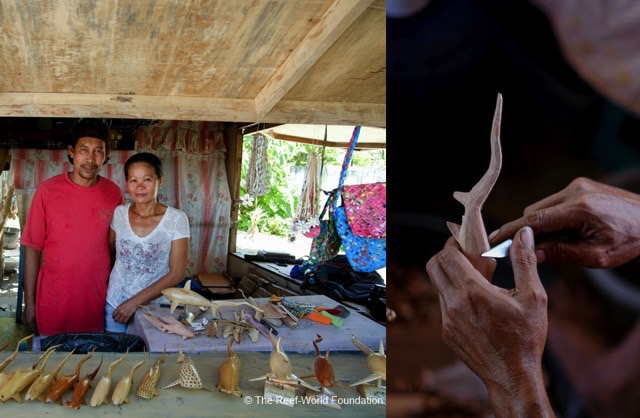
Be a sustainable shopper
If you do buy souvenirs, avoid shells and other ocean products. The mollusks that make those shells have a vital role to play in marine ecosystems, like grazing algae to prevent overgrowth on reefs, not to mention when broken down these shells replenish sand and maintain the chemical balance in the ocean which is being altered by ocean acidification. The international trade in seashells is huge, and each decision you make not to be part of that makes a difference.
Watch your waste
Cigarette butts, sweet wrappers, drink sachets, plastic bottles, masking tape on tanks – these are all items easily blown off a dive boat. The more conscious dive shops will have ashtrays and bins with lids to prevent that from happening. If there isn’t one, bring these items back to land and find a trash can. Go a step further and pick up any trash you see on a dive. BCDs (Buoyancy Control Devices) often have pockets, or you might think ahead and bring a mesh bag on the dive.
Tip your eco-friendly guide
If you’re inclined to tip your dive guides, use this to encourage positive traits like environmental dive briefings and correction of damaging behaviors underwater. Most dive guides are very aware of the need to protect reefs for their future, after all a reef in bad health isn’t going to attract tourists to sustain a dive shop. However, the age-old belief that the customer is always right can mean that guides are reluctant to point you in the right direction. Compliment them if they do and they are more likely to prevent others from damaging their reefs.
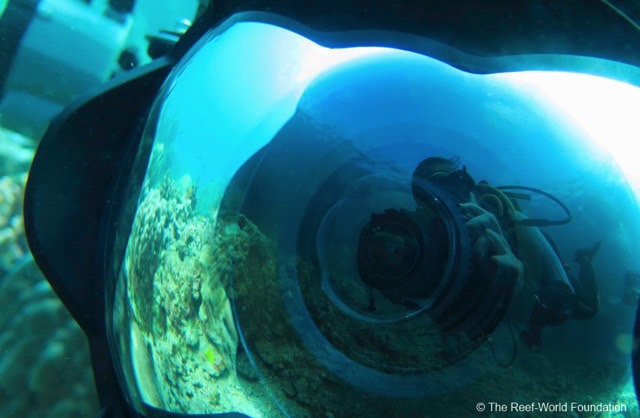
Take photos with care
Research has shown that divers with cameras make the most contact with the reef on a dive, often causing the coral to break as they steady themselves for a shot. Work on your buoyancy so you can steady yourself without support or give the camera to your guide to take photos for you.
Choose responsible operators
All dive shops are not equal. For some, cheap and cheerful diving is the bottom line. Others go the extra mile to ensure their operations have minimal impact on the reefs. If we want this to be the norm, we’ve got to show demand for sustainable business. Choose operators that raise awareness for ocean conservation. The Green Fins website is an easy tool to find operators that have been certified as actively working to improve their practices both above and below the water. Keep an eye out for other initiatives too – they all have the same message – divers can make a difference.
About the Author
Samantha Craven, The Reef-World Foundation.Reef-World is a UK Charity that coordinates the Green Fins initiative internationally. Green Fins provide the only internationally recognized standards for environmental diving and snorkeling, coupled with a robust assessment, training and consultation service to measurably reduce threats to the marine environment. Find out more about Green Fins and Reef-World, or make a contribution to their work.
Related articles
Simple and flexible travel insurance
You can buy at home or while traveling, and claim online from anywhere in the world. With 150+ adventure activities covered and 24/7 emergency assistance.
Get a quote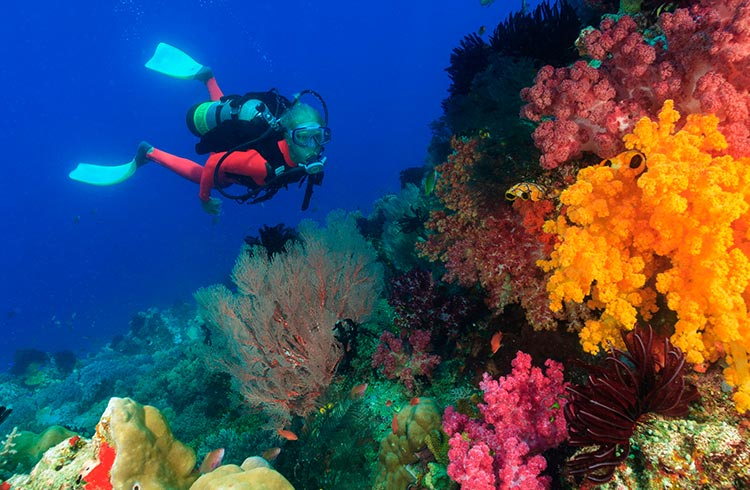
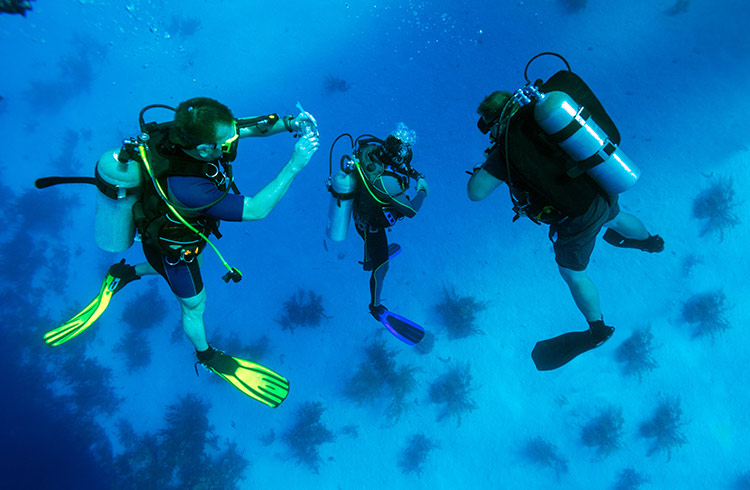
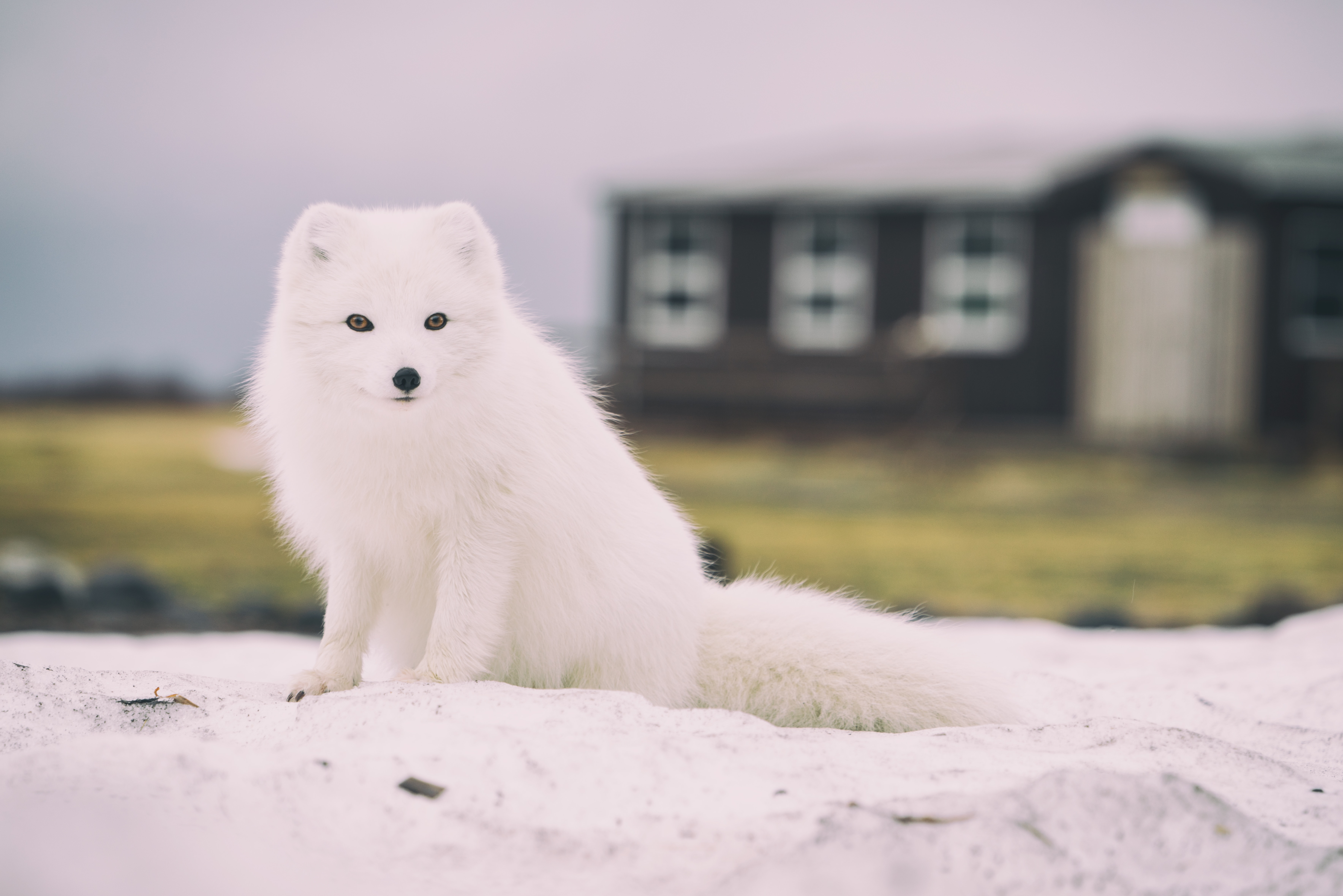
No Comments